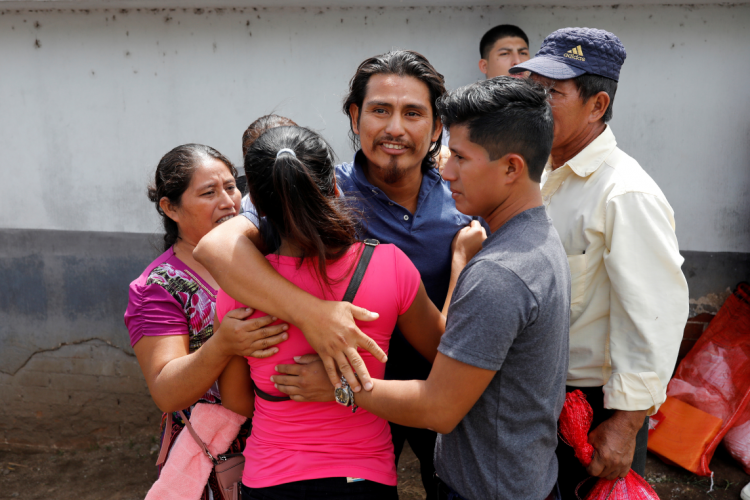As the Biden administration opens the door for an estimated 500,000 undocumented spouses of U.S. citizens to gain legal status without leaving the country, the new policy has sparked both hope and despair among immigrant families. For some, the program offers a long-awaited opportunity to normalize their status; for others, like Karen and Xavier Chavarria, it represents a missed chance that leaves them grappling with difficult choices.
Karen Chavarria, who left the U.S. voluntarily in 2017 to return to Nicaragua in hopes of reuniting with her husband Xavier through legal means, now finds herself on the outside looking in. The new policy, which allows spouses who have lived continuously in the U.S. for at least ten years by June 2024 to apply for legal status, does not extend to those who left the country voluntarily. This exclusion leaves families like the Chavarrias in a painful limbo.
President Joe Biden's initiative is one of the most significant immigration reforms since the Deferred Action for Childhood Arrivals (DACA) program in 2012. It offers undocumented spouses of U.S. citizens the chance to apply for a green card without first having to leave the country for up to ten years. The policy is designed to prevent the disruption of families and to alleviate the fear and uncertainty that undocumented spouses face living in the shadows.
"Without this process, hundreds of thousands of noncitizen spouses of U.S. citizens are likely to remain in the United States without lawful status, causing these families to live in fear and with uncertainty about their futures," the Department of Homeland Security (DHS) noted in its policy document.
However, the program's strict eligibility criteria exclude those who left the U.S. voluntarily, even if they did so to comply with existing immigration laws. Eric Lee, an immigration attorney with offices in Michigan and California, described the number of affected individuals as "massive," highlighting the irony that those who tried to follow the law are now being penalized.
Karen and Xavier Chavarria's story is emblematic of this struggle. Karen left the U.S. in 2017, after entering illegally from Mexico in 2002. She hoped to reenter the U.S. legally after accumulating enough time outside the country. Her husband, Xavier, who works in building maintenance in New Jersey, makes biannual trips to Nicaragua to visit her and their 12-year-old son. But the Biden administration's new policy, which helps those who stayed in the U.S., has left Karen devastated.
"It is something that we have been fighting for and after so much struggle, to get here without giving ourselves any hope," she said tearfully in a video interview from Nicaragua.
The policy, while offering relief to many, is seen by immigration advocates as both a significant step forward and a source of frustration. Groups advocating for immigration reform have urged the Biden administration to include those who left the country voluntarily in the new program, arguing that these individuals should not be punished for attempting to adhere to legal processes.
"The only reason why so many are being punished is because they tried to step out of the shadow, they tried to follow the law," Lee said, underscoring the policy's unintended consequences.
Meanwhile, opposition to the policy has emerged from groups favoring stricter immigration controls. The Federation for American Immigration Reform criticized the initiative as overly generous, arguing that it undermines those waiting to immigrate legally and suggesting that Biden is rushing to enroll people before leaving office.
Under the new policy, eligible spouses can remain in the U.S. for three years under a presidential authority known as parole. This includes the ability to apply for work authorization, a green card, and eventually, citizenship. The DHS estimates that 64% of potential beneficiaries are from Mexico, with another 20% from Guatemala, Honduras, and El Salvador. However, the program disqualifies individuals who pose national security or public safety threats, including those convicted of serious crimes.
For people like Juan Enrique Sauceda, a 47-year-old who was deported in 2019 while married to a U.S. citizen, the new policy offers little solace. Now living in Piedras Negras, Mexico, across the border from Texas, Sauceda longs to return to his family in Houston. "I want to return to the United States because I grew up there, I have my wife, my children, everything," he said. "I don't fit in here."
AP News and Axios contributed to this report.





